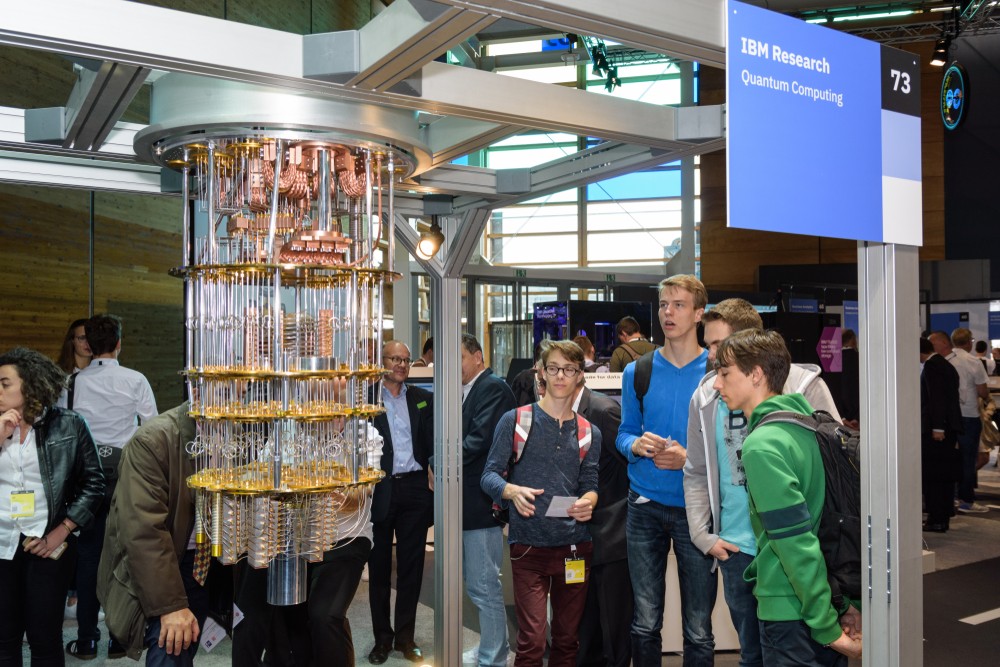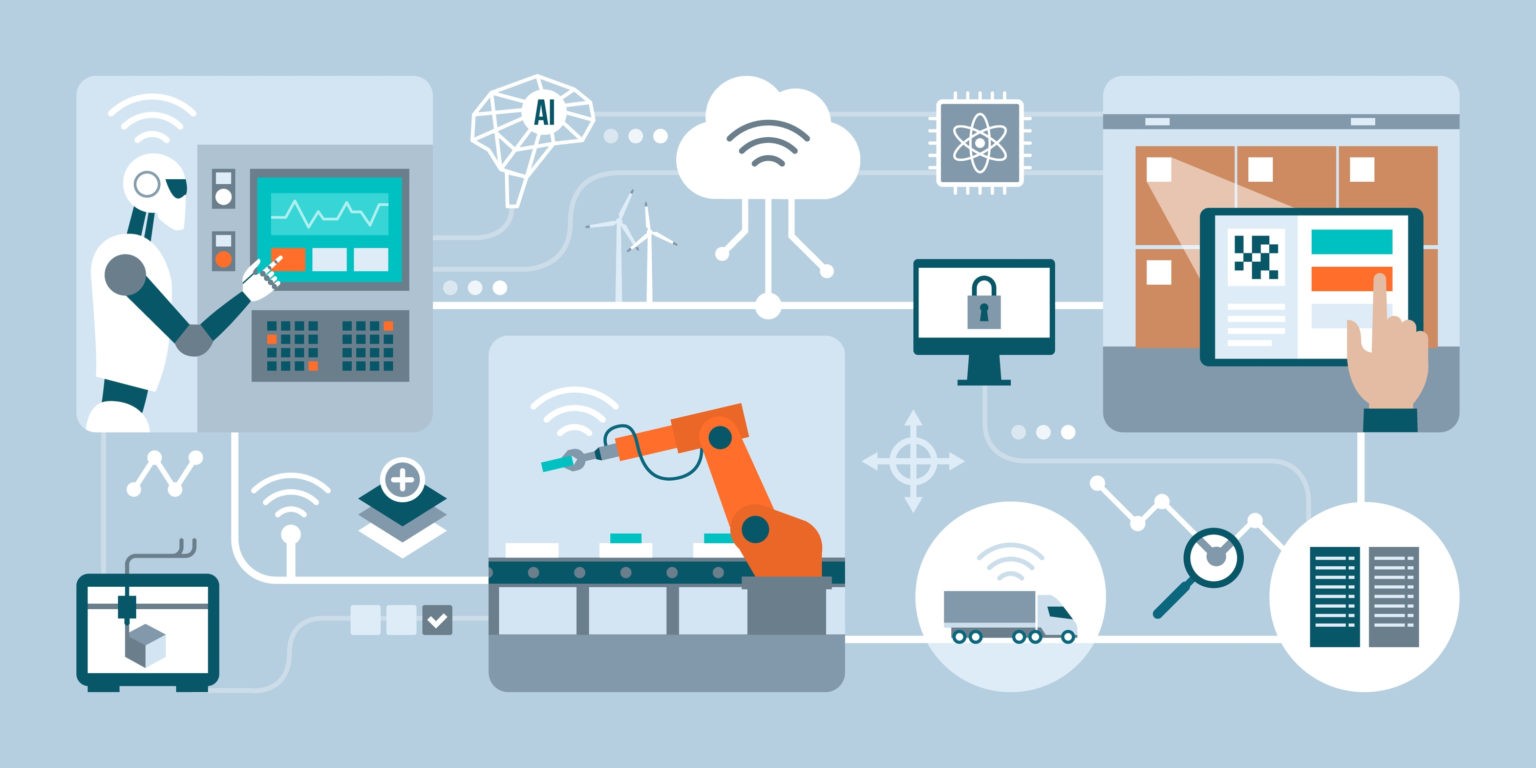Manufacturing Enters the Quantum Computing Era

Picture a box. Inside the box there’s a radioactive atom, a Geiger counter with a hammer attached to it, a flask of cyanide — and a cat. As the radioactive element decays, it will trigger the Geiger counter and cause the hammer to smash the flask, thus killing the cat. Without opening the box, is the cat alive or dead?
Until you open the box and confirm one or the other, both answers are technically true.
This is a philosophy problem called the Schrödinger’s cat thought experiment, and it serves as inspiration for something much more complex: quantum computing. While it might not seem to have much to do with factory production, Schrödinger’s cat is helping shape the next generation of manufacturing.
Quantum computing in a nutshell
Despite their tremendous computing power, today’s supercomputers still have their limits. Specifically, they are limited by the processing power of their central processing unit (CPU) and graphics processing unit (GPU) cores. These logic processors can do complex computations at lightning speed, but they are still confined to solving based on the binary positional state of data: I or O.
Quantum computing, on the other hand, deals with data in its superposition. That is, it handles data in its I/O state. The value of data does not need to be defined for the computer to process it — much like we don’t necessarily know the state of the cat in the box.
The result? Computers can solve an exponentially larger number of equations in a shorter amount of time by making assumptions about the value of an undefined variable.

How does quantum computing fit into manufacturing?
Quantum computing has the power to change the way we innovate, particularly in the manufacturing industry. In fact, there are already producers harnessing its amazing potential to solve complex engineering problems.
Take automaker BMW, for example. The company is using quantum computing to virtually model progressively safer body designs — all without an iterative prototyping process. Through quantum modeling, BMW can conserve materials, reduce development costs, improve engineering prospects, and bring a higher-quality product to market. And that’s just the start.
Several other major manufacturers are also welcoming the quantum future. In addition to rapid prototyping, there’s widespread belief in quantum computing’s ability to empower manufacturers for a new age, with implications for improving workplace safety, creating more sustainable materials, enabling fully automated dark factories, and more. Only a couple of decades into Industry 4.0, quantum computing could mark the beginning of the fifth industrial revolution.

Quantum computing is still limited
While the prospect of quantum computing is exciting, it is still in its infancy. The hardware necessary for super positional computing is still being developed, and there are integration barriers that put quantum systems a decade or more away from widespread adoption.
But this hasn’t stopped companies like BMW from dipping a toe in the water. Quantum computing’s potential makes it too exciting to pass up, even in its earliest iterations. And, like most high-profile technologies, quantum computing is likely to reward early adopters as more breakthroughs become apparent.
